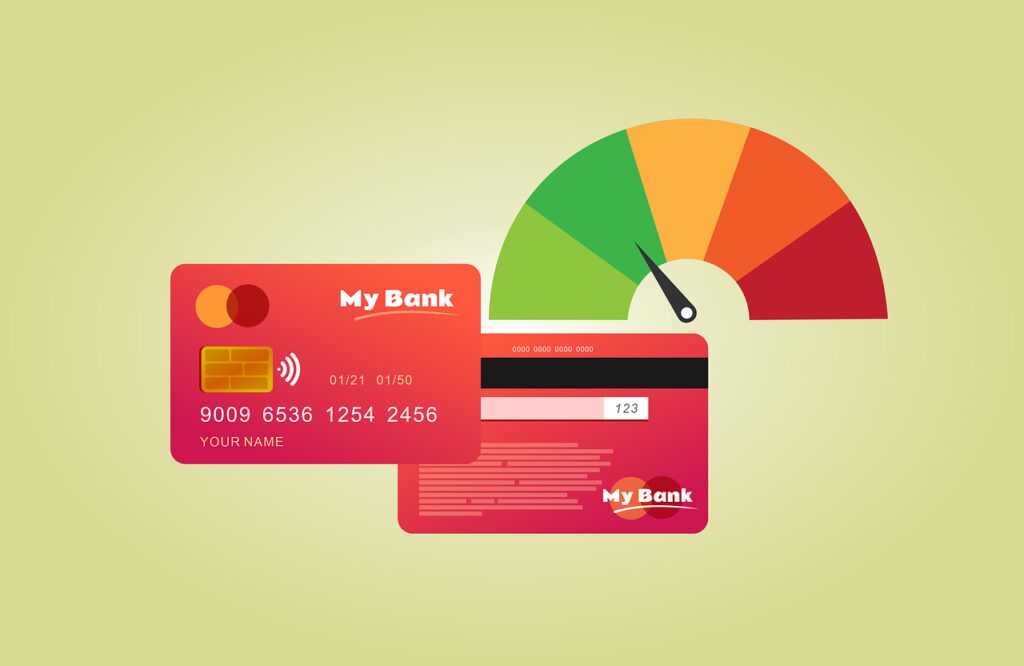
How to Improve Your Credit Score in 30 Days
A strong credit score is vital for financial health, impacting your ability to secure loans, obtain favorable interest rates, and even rent an apartment. While improving your credit score is typically a long-term process, there are strategic steps you can take to see noticeable improvements within 30 days. This guide will walk you through effective techniques to boost your credit score quickly, ensuring you make the most of this short timeframe.
Understanding Credit Scores
Before diving into specific strategies, it’s essential to understand what a credit score is and how it’s calculated. A credit score is a three-digit number that represents your creditworthiness based on your credit history. The most commonly used credit score is the FICO score, which ranges from 300 to 850. Higher scores indicate better credit health.
The FICO score is determined by five key factors:
- Payment History (35%): Timely payments on loans and credit accounts.
- Amounts Owed (30%): The total amount of debt you owe compared to your credit limits.
- Length of Credit History (15%): The age of your credit accounts.
- Credit Mix (10%): The variety of credit accounts, such as credit cards, mortgages, and auto loans.
- New Credit (10%): Recent credit inquiries and new credit accounts.
Steps to Improve Your Credit Score in 30 Days
1. Check Your Credit Report for Errors
Start by obtaining a copy of your credit report from the three major credit bureaus: Equifax, Experian, and TransUnion. You are entitled to a free report from each bureau once a year through AnnualCreditReport.com. Review your reports carefully for any errors or inaccuracies, such as incorrect personal information, accounts that don’t belong to you, or erroneous late payments.
If you identify any errors, dispute them immediately. Each credit bureau has an online dispute process that allows you to challenge inaccuracies. Correcting errors can quickly improve your credit score, as erroneous negative information can significantly impact your creditworthiness.
2. Pay Down Credit Card Balances
Your credit utilization ratio—the amount of credit you’re using compared to your credit limit—accounts for 30% of your credit score. A lower credit utilization ratio can boost your score quickly. Aim to keep your utilization below 30%, and ideally below 10%, for the best impact.
If you have multiple credit cards, focus on paying down the balances with the highest utilization first. Additionally, consider making multiple payments throughout the month to keep your balances low. This approach ensures that your credit utilization is consistently low when your credit report is updated.
3. Pay Your Bills on Time
Payment history is the most significant factor in your credit score, making timely payments crucial. Ensure that you pay all your bills—credit cards, loans, utilities, and other recurring payments—on or before their due dates. Even a single late payment can negatively affect your score.
To avoid missing payments, set up automatic payments for your accounts or create calendar reminders. If you’ve had late payments in the past, reach out to your creditors and request a goodwill adjustment. Some creditors may agree to remove a late payment from your credit report if you have a good payment history with them.
4. Increase Your Credit Limits
Another way to improve your credit utilization ratio is by increasing your credit limits. Contact your credit card issuers and request a credit limit increase. If approved, this will lower your utilization ratio, provided you don’t increase your spending.
When requesting a credit limit increase, avoid simultaneous requests with multiple creditors, as this can result in multiple hard inquiries on your credit report. Hard inquiries can temporarily lower your credit score. Instead, focus on one or two accounts where you have a strong credit history.
5. Become an Authorized User
If you have a family member or close friend with a strong credit history, ask them to add you as an authorized user on one of their credit cards. As an authorized user, the account’s positive payment history and credit utilization will be reported on your credit report, potentially boosting your score.
Ensure that the primary account holder maintains a low balance and pays on time, as any negative activity on the account will also affect your credit score.
6. Use a Credit Builder Loan
A credit builder loan is designed to help individuals build or improve their credit scores. With a credit builder loan, you make fixed monthly payments into a savings account or certificate of deposit (CD) for a set term. Once the term is complete, you receive the accumulated savings, minus any fees or interest.
These loans are typically offered by credit unions and community banks. On-time payments are reported to the credit bureaus, which can positively impact your credit score.
7. Avoid Opening New Credit Accounts
Opening new credit accounts results in hard inquiries on your credit report, which can temporarily lower your score. Additionally, new accounts reduce the average age of your credit history, another factor that affects your score.
During these 30 days, avoid applying for new credit unless necessary. Focus on improving your existing credit accounts and maintaining a stable credit profile.
8. Diversify Your Credit Mix
While this step may not yield immediate results, diversifying your credit mix can positively impact your score over time. A healthy credit mix includes a variety of credit types, such as credit cards, installment loans, and retail accounts.
If you lack diversity in your credit accounts, consider adding a different type of credit, such as a personal loan or a secured credit card. However, only take this step if it aligns with your long-term financial goals and you can manage the new account responsibly.
9. Settle Outstanding Debts
If you have outstanding debts, especially collections or charge-offs, settling them can improve your credit score. Contact your creditors to negotiate a settlement or payment plan. In some cases, creditors may agree to remove negative information from your credit report once the debt is settled.
Be sure to get any agreements in writing and keep records of your payments. While paying off debts won’t remove them from your credit report immediately, it will show that you’re taking responsibility for your obligations.
10. Utilize Experian Boost
Experian Boost is a free service that allows you to add utility and telecom payments to your Experian credit report. By linking your bank account, Experian Boost identifies eligible on-time payments and includes them in your credit report, potentially improving your score.
This service is particularly beneficial if you have a limited credit history, as it adds positive payment information that might not otherwise be reported. Keep in mind that Experian Boost only affects your Experian credit score, not your scores with Equifax or TransUnion.

Monitoring Your Progress
Throughout these 30 days, regularly monitor your credit score to track your progress. Many credit card issuers and financial institutions offer free credit score monitoring services. Additionally, websites like Credit Karma and Credit Sesame provide free access to your credit score and credit report updates.
By staying informed about changes to your credit score, you can adjust your strategies as needed and continue to make improvements.
Long-Term Credit Improvement Strategies
While the steps outlined above can help you see improvements in your credit score within 30 days, maintaining good credit habits is essential for long-term financial health. Here are some additional strategies to continue building and maintaining a strong credit score:
- Keep Credit Card Balances Low: Aim to pay off your credit card balances in full each month to avoid interest charges and maintain a low credit utilization ratio.
- Monitor Your Credit Regularly: Regularly review your credit reports and scores to stay informed about your credit health and identify any potential issues early.
- Maintain a Diverse Credit Mix: Over time, having a mix of credit types can positively impact your credit score. Manage different types of credit responsibly to build a robust credit profile.
- Avoid Closing Old Accounts: The length of your credit history affects your score, so keep older accounts open, even if you don’t use them frequently.
- Use Credit Responsibly: Continue to make timely payments, avoid unnecessary debt, and manage your credit responsibly to maintain a strong credit score.
Conclusion
Improving your credit score in 30 days is achievable with focused effort and strategic actions. By checking your credit report for errors, paying down credit card balances, making timely payments, and utilizing tools like Experian Boost, you can see noticeable improvements in a short period. Remember that building and maintaining a strong credit score is a long-term commitment that requires consistent, responsible credit management. By following these steps and adopting good credit habits, you can enhance your financial health and enjoy the benefits of a strong credit profile.

